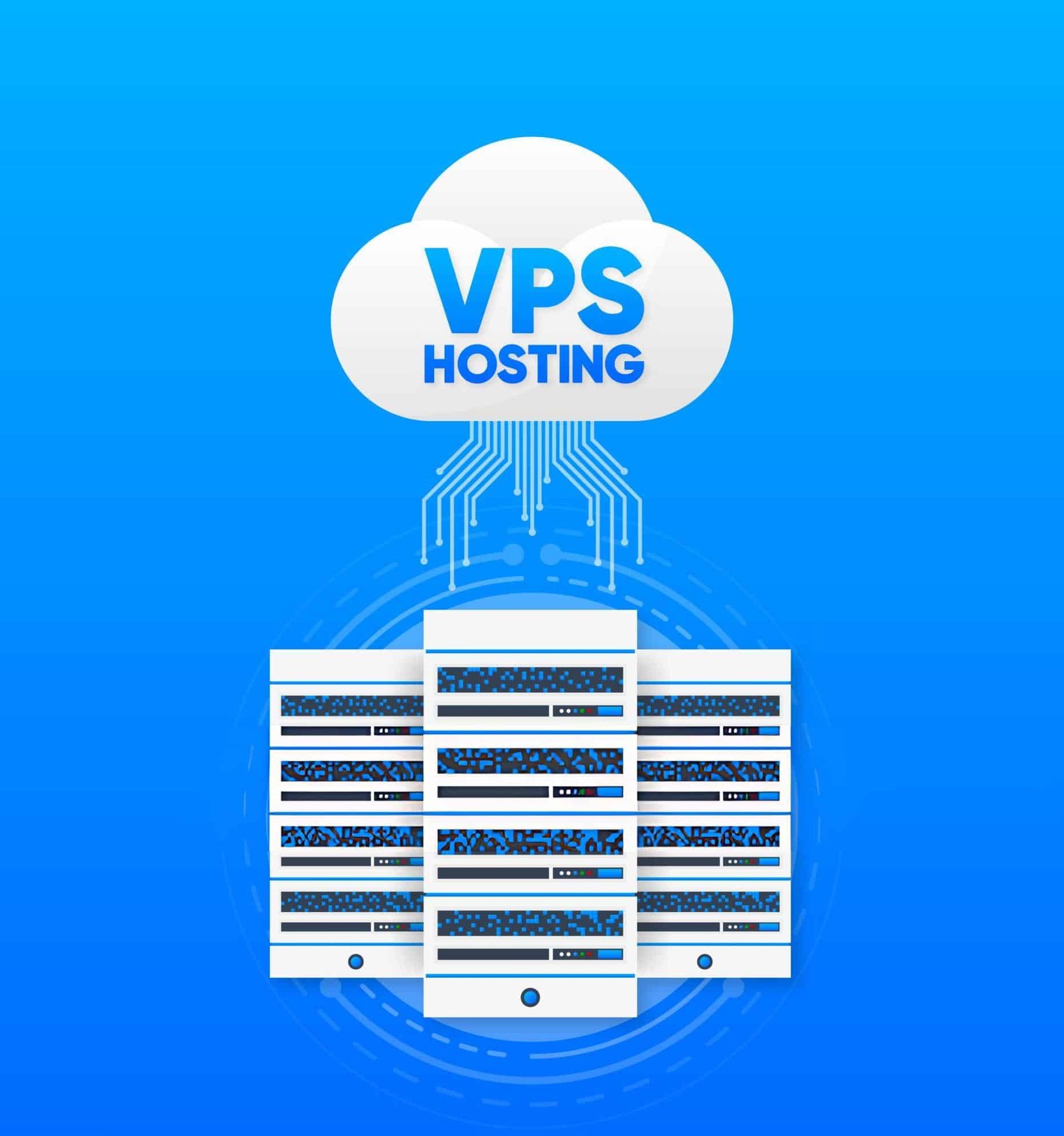Starting a website is an exciting journey, but one of the first and most important steps is understanding web hosting. This guide will walk you through the basics of web hosting, explaining what it is, how it works, and why it’s essential for getting your website online.
We’ll also explore the different types of hosting plans, what factors to consider when choosing one, and how to find the best option for your needs. Whether you’re building a blog, an online store, or a professional portfolio, understanding these concepts will help you create a reliable, fast, and user-friendly website.
What is Web Hosting?
Imagine your website as a house. To live in a house, you need land. Web hosting is like that land for your website. It’s a service that provides space on a powerful computer, known as a server (a powerful machine that stores and delivers your website’s files to visitors), where your website’s files—such as text, images, videos, code, and databases—are stored. When someone types your website’s address (like www.example.com ) into their browser, their computer connects to the server, and your website’s content is delivered to their screen.
Upgrading Your Land (Hosting) for Growth: Just as you might expand or improve land for a growing home or business, web hosting can be upgraded as your website grows. You might start with a smaller, more affordable hosting option, like shared hosting, and later move to more powerful solutions, such as VPS or dedicated hosting, as your website’s traffic and needs increase. Hosting can be adapted to fit your website’s growing demands, allowing for seamless expansion without disruptions to your site’s performance.
Think of the server as the house itself, a powerful computer specifically designed to store and serve your website’s files. In technical terms, web hosting is the service that makes your website accessible on the internet.
Without hosting, your website would have nowhere to live online, meaning no one could access it. Whether you’re launching a personal blog, a business site, or an online store, choosing the right web hosting service is essential to keeping your website live, accessible, and performing well 24/7.
How Does Web Hosting Work?
Web hosting is like storing and sharing photos online. Just as you upload photos to a cloud service to share them with others, web hosting stores your website’s files on a server and makes them accessible to visitors.
Files Are Stored on a Server: Your website’s files (text, images, videos) are uploaded to a powerful computer called a server.
Domain Connects to the Server: Your domain name (like www.example.com ) acts like the link you share to give others access to your photos—it points to the server storing your website. (A domain is the web address that people use to visit your site; it’s like a unique name for your website.)
Visitors Access Your Site: When someone enters your domain, the server sends your website’s files to their browser, just like a photo service shows images to your friends.
Hosting Ensures Smooth Operation: Just as photo-sharing services manage speed and reliability, hosting providers ensure your site is fast, secure, and always available.
In short, web hosting works behind the scenes to make your website accessible, reliable, and easy to manage.
Why Is Web Hosting Important?
Web hosting is the foundation of your website, ensuring it’s accessible, fast, and secure. Here’s why it matters:
Accessibility & Uptime: Hosting keeps your site online 24/7, ensuring visitors can always access it without disruptions.
Speed: Quality hosting improves loading times, offering a better user experience and boosting your SEO rankings.
Security: Hosting protects your site with features like SSL certificates (encrypt data), firewalls (block malicious traffic), and malware scans (detect and remove harmful software).
Scalability: As your website grows, hosting allows you to upgrade resources to handle more traffic.
Professionalism: Hosting often includes custom domain names and email addresses, enhancing credibility.
Backups: Regular backups ensure your site can be quickly restored if anything goes wrong.
In summary, web hosting provides the tools and reliability your website needs to succeed online. Now that you understand why web hosting is important, let’s explore the different types of hosting available to find the right fit for your website.
Types of Web Hosting
Just like houses come in different styles to fit different needs, web hosting comes in various types to accommodate websites of all sizes and purposes. Let’s explore the main ones:
1. Shared Hosting

Imagine living in an apartment. You share resources like parking and utilities with other tenants. Similarly, with shared hosting, your website shares a server with many others. This makes it the most affordable option, perfect for small blogs or personal websites with low traffic.
Pros:
Affordable – It’s the cheapest option, ideal for beginners.
Easy to Get Started – Simple setup with little to no technical expertise needed.
Maintenance-Free – Hosting providers manage the server, so you don’t need to worry about it.
Cons:
Performance Can Be Affected – Since you’re sharing resources, your website might slow down if other sites on the server experience traffic spikes.
Limited Control – Less flexibility over server settings or configurations.
Not Ideal for High Traffic – Shared hosting is not suitable for websites expecting large amounts of traffic.
2. Managed WordPress Hosting

If your website is built with WordPress, managed WordPress hosting is like hiring a property manager to take care of everything for you. It’s a hosting option specifically tailored for WordPress sites, where the provider handles all the technical aspects like updates, security, and backups. This allows you to focus more on your content and less on server management.
Clarification: Managed WordPress hosting is ideal for those using WordPress but may not be suitable for users of other website builders or platforms.
Pros:
Optimized for WordPress – Server configurations are tailored to make WordPress sites run smoothly.
Automatic Updates and Backups – Ensures your site stays up-to-date and secure.
Easy to Use – Perfect for beginners who don’t want to deal with technical aspects of hosting.
Cons:
WordPress-Only – This hosting is only available for WordPress websites, so it’s not suitable if you’re using a different platform.
More Expensive – Managed WordPress hosting can be more expensive than regular shared hosting.
Less Flexibility – You might have fewer customization options due to the management of your site.
Vendor Lock-In – Switching from one managed WordPress host to another can sometimes be more complex.
3. VPS Hosting (Virtual Private Server)

Think of VPS hosting as living in a townhouse. You have your own space with more control, but you still share the overall “land” (the physical server) with others. VPS gives your website dedicated resources within a shared server.
Clarification: VPS Hosting offers better performance and dedicated resources compared to shared hosting, but it requires some technical knowledge for management. If you’re comfortable with server configurations, VPS can be a great option for growing websites.
Pros:
Better Performance – Your website gets a dedicated portion of the server’s resources, improving performance.
More Control – You have more control over server settings, making it customizable to your needs.
Scalable – You can upgrade your resources easily as your website grows.
Cons:
More Expensive than Shared Hosting – It costs more but offers better performance.
Requires Technical Knowledge – You need some server management skills to get the most out of VPS.
Limited Resources – While dedicated to your site, resources are still shared with other sites on the server.
4. Dedicated Hosting

This is like owning your own house. You have the entire server to yourself, giving you complete control over performance, security, and configuration. Dedicated hosting is ideal for large websites or businesses that need maximum power and reliability.
Pros:
Maximum Performance – You get all the server’s resources, ensuring the fastest speeds and optimal performance.
Full Control – Complete flexibility to configure the server as needed.
Enhanced Security – You have full control over security settings and can implement custom measures.
Cons:
Most Expensive – It’s the most costly option and best for high-traffic websites.
Requires Technical Expertise – Managing a dedicated server requires advanced technical skills.
Excess Resources for Small Sites – If you don’t need all that power, it might be overkill for smaller websites.
5. Cloud Hosting

Imagine renting a house from a company that has many identical houses all over the country. If one house has a problem, you can easily move to another without any disruption. Cloud hosting works similarly, where your website’s resources are spread across multiple servers (the cloud), allowing it to scale dynamically.
Clarification: It’s more than just renting houses—it’s like having backup houses in different locations. If one server experiences issues, your website can quickly switch to another, ensuring high availability and preventing disruptions.
Pros:
Highly Scalable – You can easily adjust resources depending on your website’s needs.
Reliable and Resilient – Since your website is hosted on multiple servers, it’s less likely to experience downtime.
Cost-Effective – You only pay for the resources you use, making it a flexible and affordable option.
Cons:
Can Be Complex – Managing cloud hosting can be more challenging for beginners.
Pricing Can Vary – Pay-as-you-go pricing might make costs harder to predict.
Security Concerns – Data is stored across multiple servers, which can raise security and privacy issues for some.
Differences Between Web Hosting and a Domain Name
Web hosting and domain names are two essential parts of a website, but they serve different purposes. Imagine your website as a house: web hosting is the land where the house is built, while the domain name is the address people use to find it. Web hosting stores all your website’s files, such as text, images, and videos, on a server, making it accessible online. The domain name, on the other hand, is a unique, user-friendly address (like www.example.com ) that directs visitors to your hosting server.
Alternatively, if you prefer a more relatable analogy: think of your website as a bakery. Web hosting is the kitchen and storage space where you bake your delicious treats, while the domain name is the bakery’s address (like www.sweetdelights.com ) so customers can easily find you and enjoy your creations.
Both analogies help explain the vital roles each plays, but whether you connect better with a house or bakery, both web hosting and domain names work together to bring your website to life.
To get started, domain names can be registered through domain registrars, while web hosting can be purchased from web hosting providers. Together, they form the foundation of your website’s online presence.
What to Look for in a Modern Web Hosting Provider
Choosing the right web hosting provider is crucial for the success of your website. Here are the key factors to consider, particularly if you’re just getting started:
1. Performance
Fast Loading Times: High-speed servers, SSDs (Solid State Drives), and CDNs (Content Delivery Networks) ensure optimal performance. These features not only improve user experience but also positively impact SEO rankings.
High Uptime (99.9% or higher): Reliable hosting guarantees high uptime, ensuring that your website remains accessible almost all the time, which helps retain visitors and maximize potential revenue.
Scalability: Your hosting provider should offer seamless resource upgrades without disruption to service as your website’s traffic grows.
2. Security
SSL Certificates: SSL certificates are essential for encrypting data exchanged between your website and its visitors, safeguarding sensitive information like passwords and payment details.
Firewalls: Firewalls provide an added layer of protection by blocking malicious traffic and preventing unauthorized access to your website.
Malware Scans: Regular malware scans detect and remove harmful software, ensuring your site remains secure.
Backups: Frequent, automated backups protect your website’s data, allowing for rapid restoration should any issues arise.
3. Usability & Support
Easy-to-Use Control Panel: A user-friendly control panel is essential for efficiently managing your hosting account, especially if you lack technical experience.
24/7 Customer Support: Reliable customer support, available around the clock, ensures you have assistance whenever necessary, minimizing downtime and disruptions.
4. Additional Considerations for Growing Websites
Mobile Responsiveness: Ensure your hosting supports mobile-optimized websites, as an increasing number of visitors will access your site from mobile devices.
Green Hosting: Some providers prioritize sustainability by adopting eco-friendly practices, reducing their environmental footprint.
Multiple Data Centers: Hosting across multiple data centers ensures faster and more reliable access to your website from global locations.
Support for Modern Technologies: Your hosting provider should support current technologies such as WordPress, PHP, and other modern frameworks.
By carefully evaluating these essential factors, you can select a web hosting provider that aligns with your website’s specific needs, helping you establish a strong online presence.
What Is Web Hosting? FAQ
Here are answers to some common questions about web hosting:
1. What exactly is web hosting?
Web hosting is a service that stores your website’s files on a server, making your site accessible online.
2. Do I need web hosting for my website?
Yes, you need web hosting to store your website’s files and make it accessible on the internet.
3. What’s the difference between web hosting and a domain name?
Web hosting stores your website’s files on a server, while a domain name is the address (like www.example.com ) that directs visitors to your site.
4. Can I use free web hosting?
Free hosting is available, but it may come with limitations like slower speeds and less security. Paid hosting is more reliable for a professional website.
5. What if my website gets a lot of traffic?
If your website gets high traffic, you may need a more powerful hosting plan (like VPS or dedicated hosting) to handle the load and prevent slowdowns.
6. What is uptime, and why is it important?
Uptime refers to the time your website is online and accessible. High uptime (99.9% or higher) is crucial for keeping your website running smoothly without interruptions.
7. What is a server?
A server is a powerful computer that stores and delivers your website’s files to visitors when they request them.
8. What is bandwidth?
Bandwidth is the amount of data transferred between your website and visitors. Higher bandwidth ensures your website loads quickly, especially with heavy traffic or large files.
9. Do I need to be a technical expert to use web hosting?
No, most hosting providers offer user-friendly tools and customer support, making it easy for beginners to manage their websites.
10. What types of web hosting are available?
Shared Hosting: Affordable but shared with others.
VPS Hosting: More control and performance.
Dedicated Hosting: Entire server for your site.
Cloud Hosting: Scalable and reliable.
Managed WordPress Hosting: Specialized for WordPress.
This quick guide helps clarify web hosting. Feel free to reach out if you have more questions!
To Sum It All Up
Web hosting is like the land where your website lives—essential for ensuring it’s accessible, secure, and performs well. Whether you’re just starting with shared hosting or considering more powerful options like VPS or dedicated hosting, choosing the right hosting is crucial for improving your website’s speed, security, and scalability, ultimately ensuring a seamless experience for your visitors.
Now that you have a clear understanding of web hosting, it’s time to explore the options available and choose the best fit for your website. Happy hosting!


